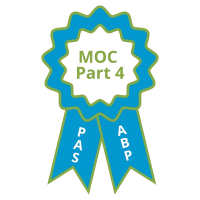Quality Improvement/Patient Safety Works in Progress
Session: Quality Improvement/Patient Safety Works in Progress
WIP 10 - Improving Utilization Metrics of Medication Historians in Inpatient Units through Quality Improvement Initiatives
Friday, April 25, 2025
5:30pm - 7:45pm HST
Publication Number: WIP 10.7685
Elisabeth Ekman, Connecticut Children's, Glastonbury, CT, United States; Jane Im, Connecticut Children's, Hartford, CT, United States; Jennifer Wiafe, Connecticut Children's Medical Center, Hartford, CT, United States; Phuong Sander, Connecticut Children's Medical Center, Hartford, CT, United States; Natalie S. Bezler, The University of Connecticut School of Medicine, Hartford, CT, United States; Heather O. Tory, University of Connecticut School of Medicine, Hartford, CT, United States; Jordan Johnstone, Advocate Children's Hospital - Oak Lawn, Chicago, IL, United States; Sravya Gourishetti, MassGeneral Hospital for Children, Boston, MA, United States

Elisabeth Ekman, DO (she/her/hers)
Resident
Connecticut Children's
Glastonbury, Connecticut, United States
WIP Poster Presenter(s)
Background: The average hospitalized patient experiences at least one medication error per day according to the Institute of Medicine’s Preventing Medication Errors Report. Accurate medication reconciliation is a requirement of The Joint Commission and is one critical step in reducing medication-related safety events. Accordingly, the implementation of the medication historian role began at Connecticut Children’s in 2023 as a dedicated resource to confirm home medications. Although the role began in the Emergency Department for patients with behavioral health concerns, it was expanded to cover all inpatient units. In spite of the identification of medication errors by the medication historians, it was noted that historians were not involved in medication review in the inpatient setting at expected rates.
Objective: Increase the percentage of inpatients with medication list review completed by medication historians by 50% by March 2025.
Design/Methods: A multidisciplinary stakeholder group was convened to discuss potential causes of decline in medication review by medication historians and develop countermeasures. Potential root causes identified as 1. residents often declining requests made by historians to review medications after physician reconciliation; 2. parental dissatisfaction; 3. poor communication regarding discrepancies identified; 4. EHR (Electronic Health Record) workflow concerns; or 5. decreased awareness of the role of medication historians. Three PDSA cycles were initiated. The first intervention included standard work to increase closed loop communication between historians and residents regarding patients identified for further medication review or identified to have medication discrepancies. The next phase of the PDSA cycle included implementation of a standard script for medication historians to utilize when reaching out to resident teams with an emphasis on prioritizing face to face communication to improve familiarity. The next PDSA underway includes optimizations in the EHR to reduce workflow redundancies between historians and physicians.


